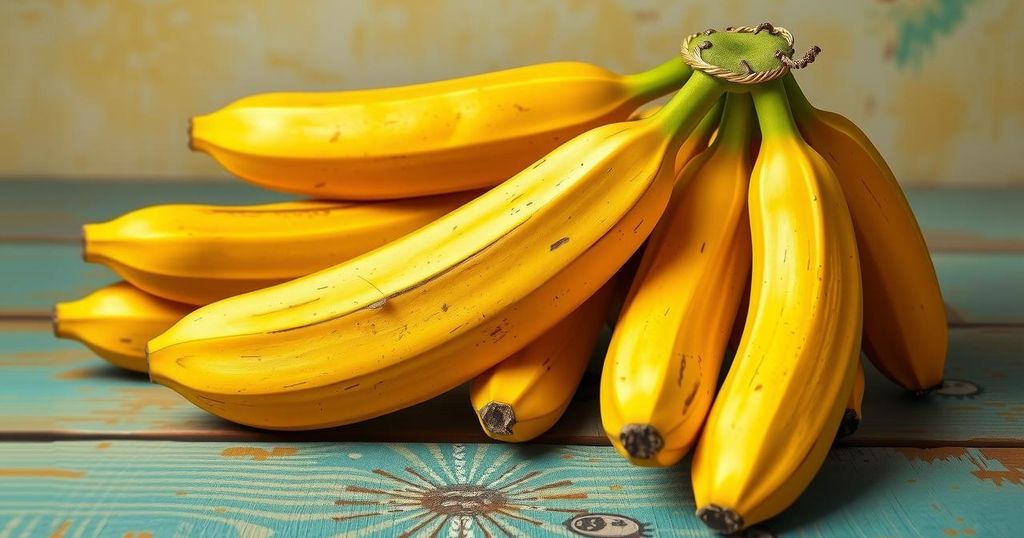Cameroon, along with Ivory Coast and Ghana, supplies bananas to Europe, with Eurofruitports receiving around 7,000 tons of Cavendish bananas weekly. The logistics involve a ten-day transit via refrigerated ships, with further distribution to France and Eastern Europe. Challenges include drug smuggling and labor costs, although organic banana production from West Africa is on the rise.
Cameroon, along with Ivory Coast and Ghana, plays a significant role in supplying bananas to Europe each week, diversifying the sourcing that predominantly relies on Latin America. Jan Simons, an operations supervisor at Eurofruitports in Antwerp, Belgium, reports receiving approximately 7,000 tons of Cavendish bananas weekly, primarily from Cameroon, which are transported using conventional refrigerated ships.
The delivery journey for these bananas involves a ten-day transit to Belgium, including a stopover in Portsmouth, UK. In addition to the West African supply, containers from Latin America, including countries such as Peru, Ecuador, and Colombia, are also imported weekly via major shipping companies like MSC, Hapag-Lloyd, and CMA CGM.
Eurofruitports subsequently distributes these bananas further into France, Germany, and Eastern Europe. According to Simons, 2024 is projected to be a stellar year for banana sales, driven by improvements in the quality and competitiveness of West African bananas, especially through the partnership with the French company Compagnie Fruitière.
Aside from bananas, Eurofruitports also deals in other produce, such as cherry tomatoes from Senegal between December and April, and mangoes from Ivory Coast and Burkina Faso during the months of April to July. Simons highlights that mangoes possess substantial growth potential in the European market.
Upon arrival at Eurofruitports, products undergo rigorous checks supported by a sophisticated warehouse management system that ensures complete traceability. The company, along with Kloosterboer and Lineage, holds a commanding position in the North Sea banana transshipment sector, with Simons noting that Antwerp’s logistical chain offers a competitive edge over Vlissingen in the Netherlands.
However, the operations face two significant challenges: drug smuggling and escalating labor costs. “We work closely with the federal police” says Simons, referencing the ongoing issue where drugs sometimes infiltrate European ports despite detours via West Africa. Additionally, the rising labor costs due to wage indexing could jeopardize the competitiveness of Antwerp-based companies, necessitating enhancements in efficiency.
Looking ahead, there is potential for growth in organic produce, as noted by Simons, who states that the volume of organic bananas has nearly quadrupled over the past decade, with sourcing expanding beyond Peru to also include Ghana and the Ivory Coast.
The article outlines the significant contribution of Cameroon, Ivory Coast, and Ghana to the banana supply chain for Europe, indicating growth and competitive improvements in West African produce. Eurofruitports ensures a robust logistical operation in Antwerp while navigating challenges such as drug smuggling and labor cost inflation. The potential for expanding organic produce markets also presents new opportunities for growth in the industry.
Original Source: www.freshplaza.com






